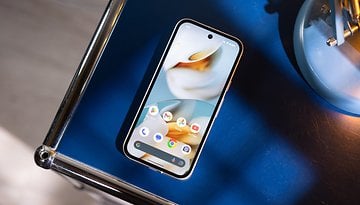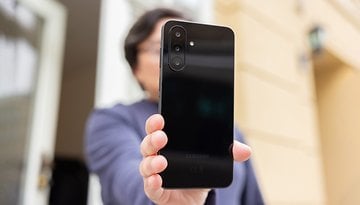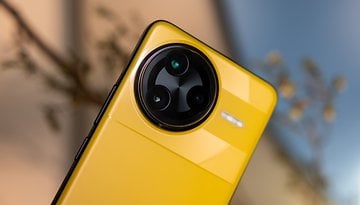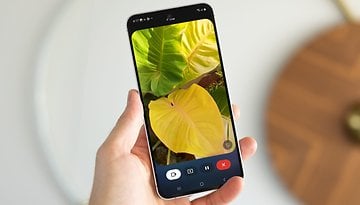After 100 days, I’m still in love with the Honor 8 Pro


Over 100 days have passed since Honor's first phablet was launched, which also happens to be a about enough time to get an overall feel for the qualities and weaknesses of the smartphone. With this Honor 8 Pro, has the Chinese manufacturer successfully managed to climb up the premium phone ladder? In my opinion, without a shadow of a doubt, the answer is a resounding yes!
A rugged design lacking in originality
One of the main drawbacks that many people alluded to during its launch was the unusual design of the Honor 8 Pro, in particular its strong resemblance to the iPhone. However, if you actually hold the phone, you'll quickly forget this "flaw", especially if, like me, you're a fan of the blue color variant. There are a few other significant differences etbween the Honor 8 Pro and the latest iPhone: the fingerprint scanner is on the back and the bands at the top and bottom of the back of the Honor 8 Pro are quite obvious. Also, no one in my general entourage ever hinted that it looked like an iPhone. However, I can see how with the black version, you might confuse it with an iPhone.
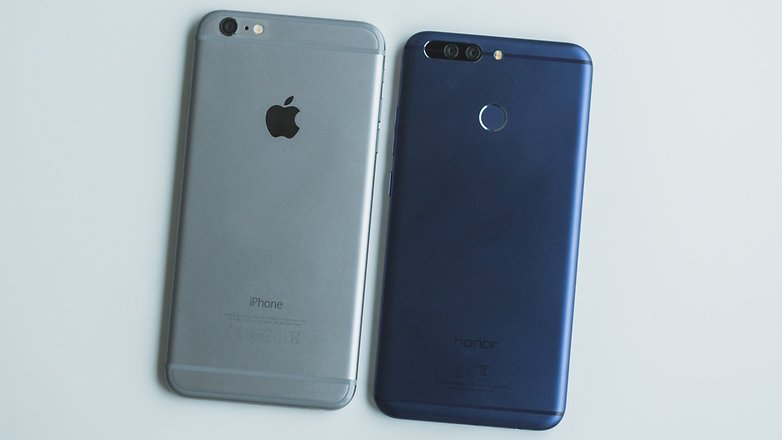
In terms of aesthetics, the Honor 8 Pro doesn't stand out much but it's a decent and good-looking smartphone thanks to its unibody metal casing and good quality build. The smartphone doesn't come with the elegance nor the originality of the LG G6 or the Galaxy S8, with their bezel-less displays, but it gains in strength and robustness compared to them. After three months of using it, I can assure you that the smartphone is tough - I dropped it and it slipped from my hands countless times and withstood each shock no problem. My Honor 8 Pro came into contact with different types of flooring (including concrete), but neither the body nor the frame surrounding the camera suffered any lasting damage.
A solid performance but it gets pretty hot
As the most expensive smartphone in Honor's catalog, I didn't go easy on this device and really put it through its paces. And I have no qualms in saying that I was not disappointed with this phone. The smartphone held the promises Honor had made at the time of writing our review of the Honor 8 Pro. The Kirin 960 processor (which was already on the Mate 9) and 6 GB RAM offer an excellent performance. Multitasking is fast, apps open quickly, waiting times are short and all 3D games work fine. Compared to the HTC U11 or LG G6 (Snapdragon 835 and Snapdragon 821 processors, respectively), the Honor 8 Pro falls just short in terms of performance but the differences are barely noticeable. In everyday use, you'll hardly feel any difference. For just over $500, you get what you pay for.
The smartphone heats up quite quickly
However, its good performance has a disadvantage: the smartphone gets hot pretty quickly. If you use the Honor 8 Pro intensively, it overheats rapidly. The temperatures reached aren't high enough to cause the smartphone to explode but if it gets too warm, as was sometimes the case this summer, you won't want to keep holding it in your hands. I also noticed the phone heating up when it was charged several times.
Perfect for multimedia
The size of Honor 8 Pro and its 5.7-inch screen make the phone a perfect tool for multimedia. Through watching videos or surfing the web, you can appreciate the immersion that such a screen size can offer. Virtual reality is also possible with the Honor 8 Pro thanks to its high resolution and the headphones in the box. It's a bit of a gimmick but it allows many users to get an introduction into the world of VR. As for sound, the Honor 8 Pro isn't bad. The audio output is impeccable, there is barely any distortion and the range of dynamics is quite wide. The speakers are a little disappointing though.
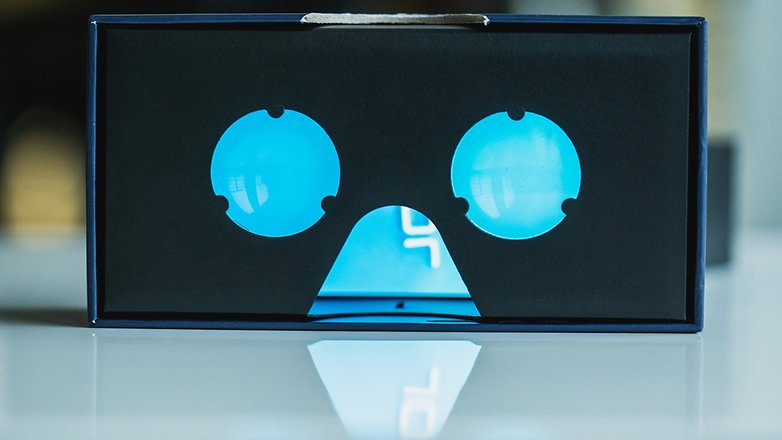
In terms of photography, the Honor 8 Pro comes with no surprises since it has a dual camera: one sensor captures in color, the other in black and white. Both Sony IMX286 image sensors are 12 MP and have "3rd generation" lenses with f / 2.2 aperture. You can get decent results with these, which are rivaled by the Google Pixel or the Galaxy S8. The color reproduction is adequate and the contrast good enough. In low light, it's about the same, with the addition of a layer of smoothing and graininess. It's worth mentioning that the front camera captures a good amount of light and a satisfactory level of detail. Overall, I think the Honor 8 Pro is well-suited to most users who won't need to tweak their app to get the best results, unlike on the Huawei P10.


The Honor 8 Pro interface is pleasant to use and now, Honor actually updates its devices. For a long time, Honor (and Huawei) phones suffered because of their unusual EMUI software interface, which was too similar to iOS, in addition to a distinct lack of updates. Fortunately, for a while now, the Chinese manufacturer has evolved and revised its homemade interface. The similarity with Apple's mobile system is still very present but Honor now offers more customization possibilities, such as activating the app drawer or swapping navigation keys.
After 100 days of using it, the interface barely encountered any bugs. Best of all, Honor now even regularly publishes updates for its Honor 8 Pro - as I write this article, my Honor 8 Pro is getting its July security patch update. In my opinion, this is one of the biggest benefits the smartphone has to offer. The Chinese manufacturer finally listened to its users by adding elements (like the app drawer) and updating its smartphones better with regular updates. It wouldn't be unreasonable to hope for an update to Android Oreo in a few months.
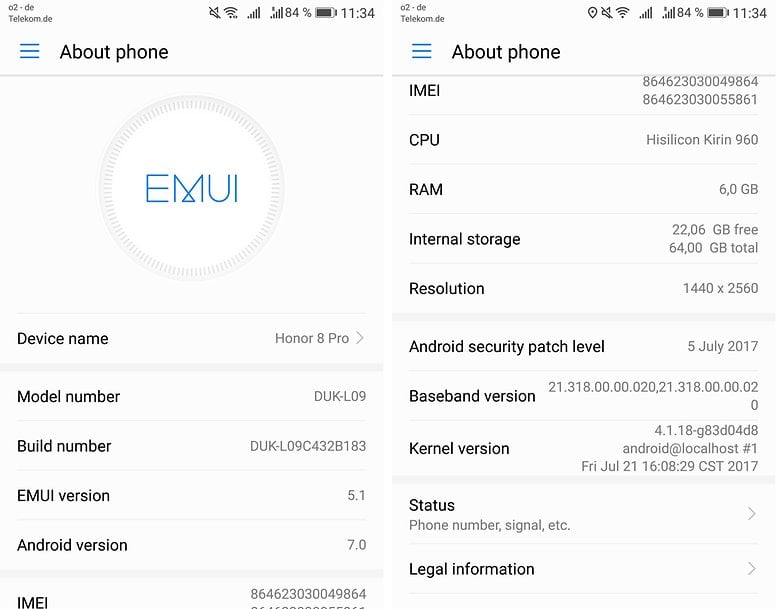
Some criticisms
Overall, the report card for this smartphone is quite satisfactory. The Honor 8 Pro does have some small flaws, starting with a rather high SAR (specific absorption rate index), which indicates the amount of radiation emitted by a mobile phone. This value, which is expressed in W/kg, can therefore provide information on the potential level of "harm" from a mobile even if the latter is not clearly defined. Honor has never been a top student on the matter and the Honor 8 Pro is once again a reminder of this. The smartphone shows high SAR levels: 1.28 W/kg for the head, 1.27 W/kg for the body.
Another important point is that the Honor 8 Pro is compatible with all 4G frequency bands except the 700 MHz band. Depending on which country you're in, that could be a bit of a bummer.
Would I recommend the Honor 8 Pro?
Utimately, what do I think about the Honor 8 Pro? For me, this is a great smartphone. Ergonomic despite its size, it offers excellent value for money. It'S more affordable but just as powerful as a Mate 9, qnd this phablet even offers QHD definition, which Huawei smartphones do not. You can also try out virtual reality easily. To provide the this amount of services and option for such an affordable price is to the credit of this Honor 8 Pro. It excels in this role, supporte by balanced performance. It certainly does not offer the originality and appeal of the Galaxy S8+ or even a LG G6 but the Honor 8 Pro offers balanced benefits perfect for most users...
What do you think of the Honor 8 Pro? Do you have one? Would you recommend it? Share your thoughts in the comments below!






